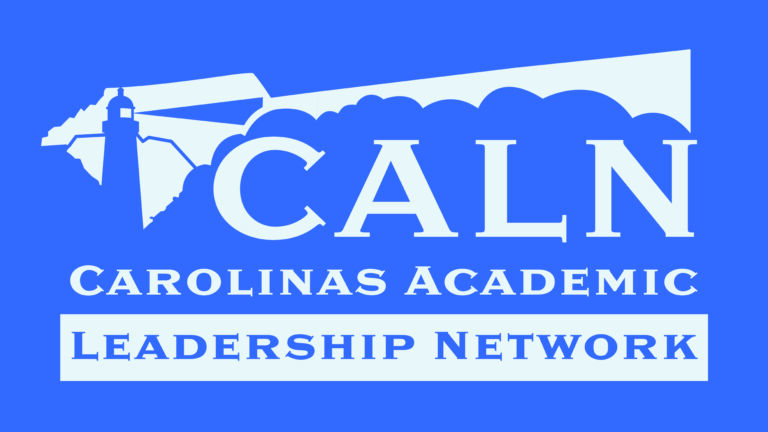Straight Talk On Education Scholarship Accounts
Quick Look at Arizona ESA Program Facts, Actual South Carolina Bill Details Dispel Falsehoods
To state that Palmetto Promise Institute is very familiar with the Education Scholarship Account (ESA) concept is to put it mildly. In fact, no organization in South Carolina has studied the details of ESAs more than PPI. That’s why we have a keen radar as to the truth and falsehoods about ESAs.
If you are not familiar with them, ESAs, which started in Arizona, allow a K-12 student to access a portion of state education funding allocated to him or her to use for tuition at an independent school or for a wide range of tutoring and therapy services. If that sounds familiar, it is not unlike the state aid programs in place in South Carolina to support pre-kindergarteners and college students who wish to be educated in non-public settings.
As for the legislation, our belief is that it is fine to disagree with us about whether the state legislature should pass ESAs, but disagreements should be based on facts, not tired national education union talking points or self-interested misrepresentations.
The Guiding Principles
As the legislation makes its way through the South Carolina General Assembly, there are a few broad-brush misnomers that get in the way of a thoughtful discussion. Most of them center around a failure to grasp a few basic concepts.
- Arizona is the ESA model for South Carolina to follow.
There are a number of ESA programs. The Arizona model is the premier model and the rubric for the program described in South Carolina’s ESA bills. Because of this, claims about ESAs from states other than Arizona being “reduced or failing” are a distraction and completely miss the point. All ESA programs in every state are certainly not of the same quality. The SC ESA bill is based specifically on Arizona’s successful ESA program with its ten-year track record. The Arizona program is strong, constitutional, and growing. Recent audits of the Arizona program show fraud to be extremely rare. The SC bill requires an online system rather than a debit card system so that only qualified vendors who provide services can get paid. - “Separation of Church & State” continues to be misunderstood.
Public dollars flow to parents for use in private and religious schools in scores of education choice programs across the country and have done so for decades. These programs operate within the bounds of the First Amendment to the United States Constitution and the findings of the most recent federal cases to reach the Supreme Court of the United States, including Espinoza v. Montana Department of Revenue (2020). Independent schools in South Carolina have faith-based standards, which they do not have to modify in order to assist the state with the most difficult students to educate. These “private” schools are welcoming to all and ESA legislation makes certain of that by requiring compliance with the Civil Rights Act of 1964. - The South Carolina version of the ESA bill is a work in progress.
The South Carolina version of the ESA bill making its way through the legislative process has a number of features that are in the 70+ school choice programs in America. It may not include every single option, but the range of options in education choice programs in the United States is so broad now it makes winnowing down to a few a challenge! As with all legislation, however, what features do or do not end up in the bill are not final until the General Assembly votes and the Governor signs it: “it ain’t over ‘til it’s over.” - All education choice programs that have any connection to public dollars involve “government” in some way (or else there would be no need to pass a law to create them). ESAs are the most flexible for parents and the least intrusive form of choice.
All three methods for providing education choice—vouchers, tax credit scholarships, and ESAs—involve government agencies. If private individuals were raising private money to go to kids to attend private schools, and no tax break were involved, there would be no need for legislation! Churches and other charities do this every day without legislative action. Other bills calling for new tax-credit scholarships in South Carolina, including the one known as “PACE,” must involve the Department of Revenue and is not purely private funds: it is by definition donated state tax liability that is controlled (raised and distributed) by a middleman. The ESA structure is truly the “money follows the child” idea that conservatives have championed for years, as state education dollars follow a child directly to parent-directed accounts, giving parents maximum control and decision-making for their child. As for tax advantages, education decisions should be made based on what is best for kids and their parents: not on who gets a tax credit.
The Specifics
- ESAs are constitutional.
After a bill passes, the go-to defense for school choice opponents is nearly always to drag the bill into court. Because of this, all choice structures (voucher, tax-credit scholarship, ESA) have run into legal issues specific to individual state constitutions at some point. In fact, the “PACE” tax-credit scholarship funding mechanism is in court right now in Kentucky. Unlike the ESA bill which would be enacted in legislation and state-funded, the SAFE Grants program that was found unconstitutional in South Carolina (Adams v. McMaster) was funded by federal funds that were authorized by the Governor alone: legally speaking, it is apples and oranges, and the Arizona charted path to ESA constitutionality is dead on point. - ESAs are clearly the national trend and the most popular form of education choice.
Five of seven new education programs passed in the states in 2021 were ESAs (70%). Tax-credit scholarships (like “PACE”) may currently serve more students nationwide simply because they have been in existence longer than ESAs. Tax-credit scholarships are not the oldest form of school choice. Education choice programs have been around since 1869. Modern “school choice” traces its founding to Milwaukee’s voucher program in 1990. Tax credit scholarships appeared in 1997 and ESAs made their debut in 2011. - SC ESA bills protect the privacy of students and the autonomy of schools.
These ESA bills expertly craft protections for schools and parents. But as this is a bill in progress, other protections could be added. Student data is protected by being aggregated and by requiring that federal and state laws be strictly observed. As for school and “government strings” or “regulatory creep,” could this language taken directly from the ESA bill be any stronger? Additionally, participation in either program is entirely voluntary. Quoting SC’s ESA bills:An education service provider that is not a public school is autonomous and not an agent of the State or federal government, therefore: (1) the department or any other state agency may not regulate the educational program of a certified education provider that accepts funds from an account; (2) the creation of the program does not expand the regulatory authority of the State, its officers, or a school district to impose regulation of education service providers beyond those necessary to enforce the requirements of the program; (3)the freedom of education service providers to provide for the educational needs of ESA students without governmental control must not be abridged; (4) an education service provider that accepts payment from a parent using funds from an ESA pursuant to this chapter is not an agent of the State or federal government; and (5) education service providers shall not be required to alter their creeds, practices, admissions policy, or curriculum in order to accept payments from a parent using funds from an ESA.
- SC ESA bills do not mandate a specific “out of state” contractor that will export administrative services out of South Carolina.
Wild accusations about a particular ESA account administrative vendor have no basis in the text of the bill and are simply not factual. - SC ESA bills include low-income students, children with special needs, and military families.
There are over 70 school choice programs in America with widely varying eligibility criteria for students. The SC ESA bills do not currently include every provision in every program. But the fact remains, all ideas are on the table for any school choice bills, including what students would be eligible, as they move through the legislature. That is just Legislative Process 101. Making any K-12 student eligible, removing the cap on the number of participants, removing income limits, and even adding kids who have been in foster care or victims of bullying follow the Arizona program are ideas we love and believe are worthy of consideration. - SC ESA bill grant levels as currently projected will indeed cover tuition in most South Carolina independent schools.
Final funding levels has not been set, but current estimates show ESAs robust enough to cover private school tuition. Median tuition in SC independent schools is between $5,000-$6,000 a student and many, if not most, provide scholarship support through fundraising and frugality. - SC ESA bill companion legislation benefits homeschool students with no strings attached.
The ESA bills in the Senate and House have companion bills designed specifically for home-schooled students that would allow homeschool parents to take a direct tax deduction for their expenses, without having to sign up for a program or work through a middleman who takes a cut off the top. Those bills have been endorsed by the Home School Legal Defense Association (HSLDA). - SC ESA legislation welcomes a range of providers including all independent schools.
The ESA program would be open to any school that wants to participate and meets basic standards based on existing South Carolina law. Additionally, ESAs allow for many other qualified education service providers such as for tutoring or educational therapies to participate, not just schools. - SC ESA legislation includes strong accountability measures.
No, the ESA bills do not require ESA students to take the “the state test.” The state test is an instrument developed by South Carolina public schools and for South Carolina public schools. Public school standards and curriculum are tied to that state test. ESA students will be required to sit for a national “norm-referenced” test that will assess how well ESA students are being educated compared to their peers across the nation. - SC ESA legislation has broad grassroots support.
ESA is a massive grassroots movement led by parents, grassroots activists, and every independent school association in SC.







